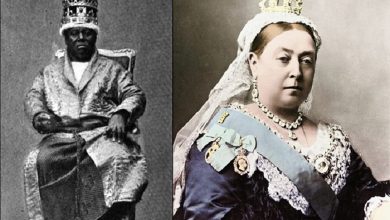Last Jewish Kings

After Josiah, his twenty-three-year-old son Jehoahaz sat on the throne. He reigned for three months and was dethroned by Pharaoh Necho. This king did not inherit the purity of his father; he was wicked. He succeeds by the twenty-five-year-old Joachim, who reigned for eleven years. He also did iniquity.
In 598, the eighteen-year-old Jeconiah reigned. Like his predecessors, he was wicked. His reign was short-lived. In the same year, three months later, King Nebuchadnezzar came to Jerusalem and took him into captivity.
In the same year, the throne passed to Zedekiah. He was the last (twentieth) king of the Jews. The name Zedekiah was bestowed to him by Nebuchadnezzar ll, who placed him in power. His real name is Mattaniah. Zedekiah was the uncle of Jeconiah, who was taken captive. In 588, in the eleventh year of the reign of Zedekiah, God’s anger broke out against Jerusalem because this king also did what was displeasing to God.
At this time, the Edomites, Moabites, and other peoples rebelled against the rule of the Babylonians. The Prophet Jeremiah warned against this insane step. The Lord, through the Prophet, urged to obey the Chaldean king: And now I give all these possessions into the hand of Nebuchadnezzar, the ruler of Babylon, my servant, and even the beasts of the field I offer him for his service (Jer 27: 6).
But Zedekiah set aside from the Babylonian king and raised a rebellion. Nebuchadnezzar was in trouble. It was necessary to decide whom to direct the blow because the mutiny broke out in several places. Nebuchadnezzar cast lots, and the lot fell on Jerusalem. A protracted siege of the city began. Josephus Flavius says that it conducted following all the rules of the art of war.
The Chaldeans built many barriers around the city, reaching the same height as the walls. They erected massive towers on the ramparts and, with the help of these towers, did not allow the defenders of Jerusalem to take positions on the walls. The defenders of the doomed city stubbornly and steadfastly withstood the siege. For a long time, their courage could not be broken by the military art of the besiegers, nor by hunger, nor by a pestilence. They boldly went out into battle, not embarrassed by the enemy’s cunning devices and siege weapons. The resistance lasted eighteen months until the defenders “fell victim to hunger and projectiles, which the enemies sprinkled them from the tops of their siege towers” (Josephus, Antiquities of the Jews).
On the 9th day of the fourth month of Tammuz (July), 587, the Chaldeans made the first breach of the city wall at the northern gate. Upon learning of this, King Zedekiah fled at night through the gate between the two walls, which researchers identify with the entrance of the Source. The fugitives went to Jericho, but on the way, they capture by the Chaldeans. Former king Zedekiah was taken to Nebuchadnezzar, who was in Riblah (in the land of Hamath). In front of Zedekiah’s eyes, his sons were executed. Then he was blinded. The highest representatives of the ecclesiastical and civil authorities were also taken to Nebuchadnezzar in Riblah and executed. Blinded, Zedekiah takes to Babylon, where two years later, he also put to a violent death.
The Lord’s warnings came true in the Kingdom of Judah, but only later, one hundred and thirty-four years later. The holy writers say:: and Judah also did not keep commandments of the LORD his God, walked according to the custom of the children of Israel, because they did. And the LORD forsook the children of all Israel, and humbled them, and delivered them into the hands of robbers, and finally rejected them from his presence (2 Kings 17:19-20).
The misfortunes of the once crowded, flourishing city mourned in the book of the Prophet Jeremiah. He weeps bitterly at night, and his tears are on his cheeks. He has no comforter of all who loved him; all his friends betrayed him, became his enemies (Lament 1, 2). In memory of this tragedy, the Jews established 17 Tammuz one-day fast.
The fall and destruction of Jerusalem were only the beginning of national calamities. The following month, on the 9th, another painful and challenging event for the memory of the Jews took place – the Jerusalem temple burned down by the military leader Nauzardan. A one-day fast also mark this day. The damage of the Temple of Jerusalem by the Romans in A.D. 70 falls on the same day.
For most of the inhabitants of Jerusalem and other Jews, the seventy-year captivity began. The country has not remained wholly deserted. A small fraction of the surviving most impoverished population could not brighten up the overall picture of the terrible desolation of Judea. By order of the Babylonian king, the Prophet Jeremiah gives the freedom to go to Babylon or stay in his homeland. The Prophet chose the latter.
Over the rest of the Jewish population, Nebuchadnezzar appointed governor Gedaliah. As a noble and wise man, he urged his compatriots: do not be afraid to be subject to the Chaldeans, settle on the earth and serve the king of Babylon, and it will be well for you (2 Kings 25, 24). These words contained obedience to the will of God.
Gedaliah chose Mizpah as his residence, a city northwest of Jerusalem. Here he made a guard from the Jews and Chaldeans and, with the support of the prophets Jeremiah and Baruch, tried to organize the poor population of Judea into a community. These plans did not come true. Gedaliah was viciously killed two months later by Ishmael, sent by the Ammonite king Baalis. According to Jewish tradition, a fast establishes in the seventh month in memory of the violent death of Gedaliah. Josephus Flavius calls Gedaliah an honest and benevolent man.


